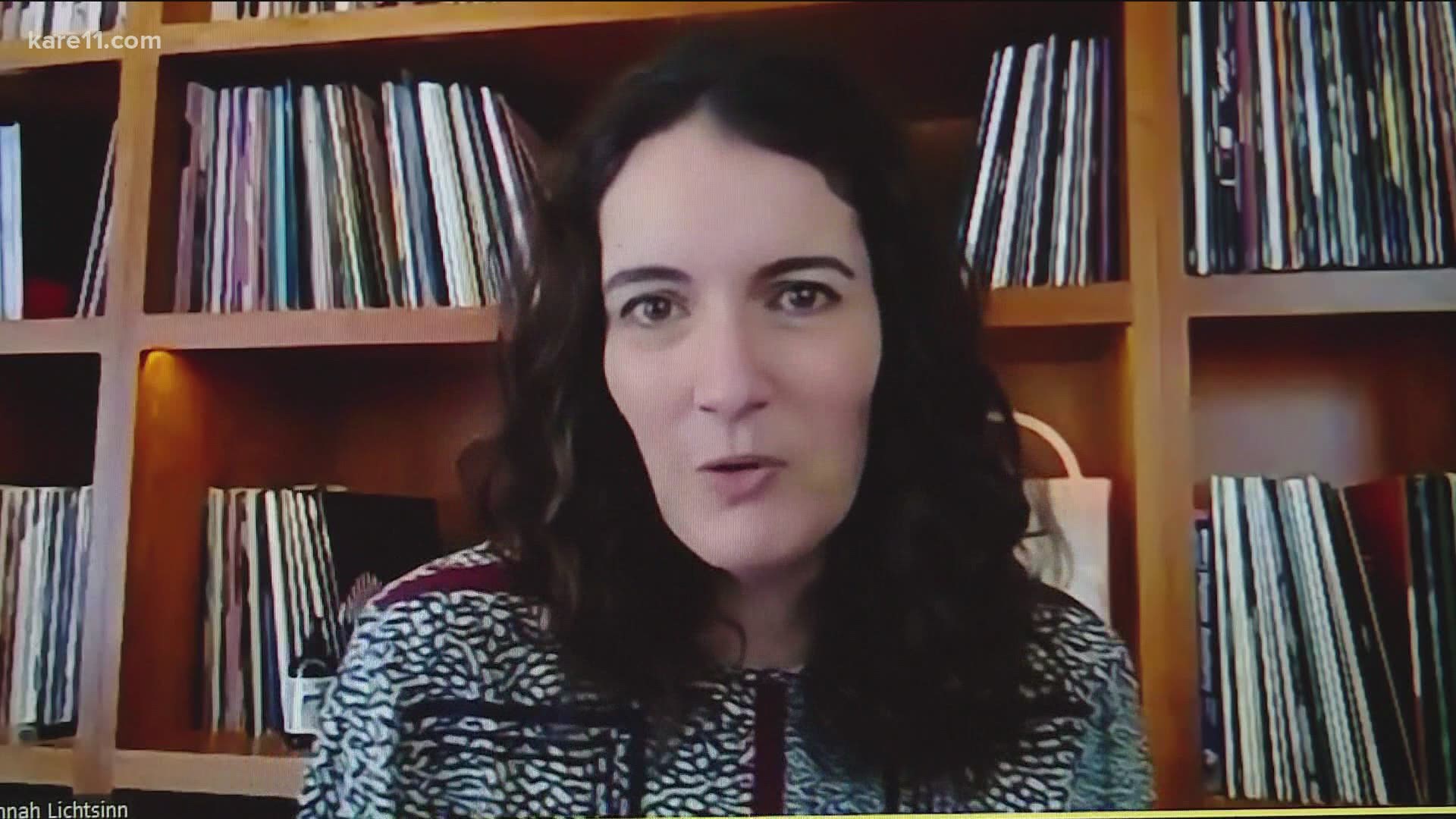MINNEAPOLIS — In the next month, nearly half a million Minnesotans will have received both doses of the COVID-19 vaccine.
So far 116,000 Minnesotans, mainly healthcare workers, have already reached that milestone, and many say life has both changed in one way, but not in another.
"My day-to-day life has not changed significantly after having the vaccine," said Dr. Hannah Lichtsinn, a physician in Minneapolis. "But my personal stress level has because I know my risk of getting very sick has gone down."
After waiting two weeks after her second dose, Dr. Lichtsinn knows the vaccine she received should be offering about 95% protection.
"But that's not 100%," she said. "And we're still waiting to collect the data on how these vaccines hold up against the new variants of the virus that we are now seeing circulate in the United States."
While she waits to see that data, she also has other people in her family pod to worry about protecting. She has two young children and two older parents who she is in close contact with, who have yet to receive their second dose. Even when they do get the second shot, she says their social activities won't change much.
Kent Erdahl: "Do you have certain advice that you've given your own parents?"
Dr. Lichstinn: "Oh yes, and I'm sure they'd love to talk to you about how strict I am with them. Essentially they are being just as careful as they were before. You know, maybe it will be getting together with friends of theirs who have also been vaccinated, but to a large extent, it just means that we can be together without as much fear."
Erdahl: "Are there certain activities that you'd feel safe doing now versus not?"
Dr. Lichtsinn: "Personally, I am not comfortable getting on an airplane. I would be comfortable potentially going and staying at a hotel or a vacation area with my family, but, honestly, my children haven't had the vaccine, and so I don't want to expose them to anything even when I am protected."
Dr. Lichtsinn isn't alone in taking it slow.
"If I'm out in public, I am still using the same safety precautions, I'm still trying to maintain the six foot distance," said Dr. Susan Kline, an infectious disease physician at the University of Minnesota Medical School and M Health Fairview. "I'm trying to protect myself and I'm trying to protect other people."
Dr. Kline says even though the Moderna and Pfizer vaccines appear to be up to 95% protective after the second dose, it will still be months until we approach herd immunity, meaning you still have a chance of getting it.
Even if that's a risk you're willing to take, Dr. Kline says there is still uncertainty about the risk vaccinated individuals might pose to others.
"It could be possible I could be asymptomatically infected, or minorly infected and I don't want to spread it to others," Dr. Kline said.
The doctors say that is one of many lingering questions that still need to be answered with research... and time.
"They are working to collect that data," Dr. Lichtsinn said. "Hopefully, soon, we'll have a better understanding if, after the vaccine, people are able to transmit the virus. My hope is that the transmission rate will be dramatically reduced. Hopefully, close to zero, for people who have had the vaccine, but that's a best case scenario. Until we really know, as a physician and as a parent and as a daughter, I don't want people taking risks if they can avoid them."
Erdahl: "What should people keep in mind if they start to hear conflicting information or changing information on this?"
Dr. Lichtsinn: "In the absence of good data people will, and should, form their own assessments about what feels safe and what feels right to them, and what feels right to me may be different than what feels right to someone else and their family. But when looking for expert opinion, I encourage everybody to reach out to a trusted medical professional - not Facebook, not Twitter - find someone that you know that you trust and ask what they think."

